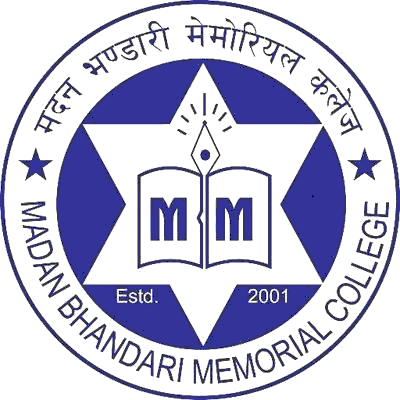Overview
Central Department of Population Studies, Tribhuvan University: Enhancing Population and Development Research and Training
The Central Department of Population Studies (CDPS) at Tribhuvan University is a renowned research and training institution in Nepal. Recognized by the Government of Nepal, CDPS plays a crucial role in providing professional advice, conducting research, and offering training programs to support population policy formulation and implementation in the country.
Establishment and Growth
Established in 1988 by the T.U. Council, CDPS has evolved over the past 30 years into a leading center for population dynamics in Nepal. The department has received consistent funding, including support from the United Nations Population Fund (UNFPA) since 1990. With the backing of UNFPA, CDPS has made significant contributions to the nation's population sector.
Partnerships and Collaborations
CDPS works closely with various government agencies, including the Ministry of Health and Population (MoHP), as a focal point for training and research activities. Additionally, the department collaborates with other sectoral ministries, policy-making agencies, and international organizations such as the Department for International Development (DFID), International Labour Organization (ILO), World Bank, and British Council/DFID. These partnerships provide additional funding for research, curriculum development, and institutional linkages.
Funding Sources
CDPS receives regular support from Tribhuvan University, ensuring its sustainability and growth. In the past, UNFPA has been a significant funding source, providing assistance for both infrastructure and program activities. DFID has also offered technical assistance to strengthen institutional linkages with the Centre for Population Studies at the London School of Hygiene and Tropical Medicine. Furthermore, the World Bank and British Council/DFID have provided recurrent funding for small and medium-scale research projects. The Higher Education Project of Tribhuvan University has granted additional funds to strengthen virtual teaching during the Covid-19 pandemic.
Objectives
The main objective of CDPS is to enhance national capacity in training, research, and policy analysis related to population and development. The department aims to achieve the following specific objectives:
- Increase the pool of well-trained human resources in population studies through Master of Arts, Master of Philosophy, and Doctor of Philosophy programs. These individuals will possess the necessary analytical skills to support all levels of government in population management and integrating population considerations into development planning.
- Provide introductory and specialized short-term training programs to improve the performance of officials from the Government of Nepal, Tribhuvan University Campuses, and relevant NGOs. This training will enhance their capacity as planners, educators, trainers, and social service providers.
- Undertake research and policy analysis projects in collaboration with the Government of Nepal, United Nations, and specialized agencies. CDPS aims to assist these agencies in designing effective policy strategies and monitoring program implementation.
- Organize national, provincial, and local level consultations, seminars, and workshops to address population management and development issues. By bringing together policymakers, practitioners, community leaders, technical experts, and researchers, CDPS seeks to foster dialogue and find solutions.
- Provide professional advisory services to the Government of Nepal, provincial and local governments, United Nations agencies, international and national NGOs, and private sectors. CDPS offers its expertise to assist these entities and local communities in addressing population-related challenges.
- Increase awareness of population, poverty, and development issues in Nepal and their interconnections with human development. CDPS achieves this by publishing evidence-based research, technical papers, seminar proceedings, teaching aids, and other informative materials.
- Foster collaboration and networking with other institutions in Nepal and abroad that work in the field of population and development.
- Establish partnerships with universities and academic institutions to strengthen academic work on population and development.
Admission Guidelines for MA in Population Studies
Admission Process:
- The admission process for the MA in Population Studies program opens once a year.
- Prospective candidates can obtain the prescribed admission form from the office of the Department or Dean's Office by paying the necessary fees.
- An eligibility test/qualifying examination, serving as an entrance examination, will be conducted by the Dean's Office or the department for admission.
- The merit list of students to be admitted will be prepared based on the performance in the entrance examination.
Admission Criteria:
- A candidate must hold a Bachelor's degree in any discipline recognized by Tribhuvan University to be eligible for admission.
- Prospective students are admitted based on their performance in the entrance examination.
- Marks obtained by the student at the Bachelor's level may also be considered when determining the merit of admission.
- The availability of teaching faculty and basic infrastructure will determine the number of sections for each discipline.
- Considering the number of students applying for admission, there will be at least one section for each discipline when the student count is below 50.
- The maximum number of students in one section in all disciplines will be 50.
By following these admission guidelines, prospective students can apply for the MA in Population Studies program and be considered for admission based on their performance in the entrance examination and academic qualifications.
Courses Offered:
MA, PhD, and MPhil in Population Studies
The Central Department of Population Studies at Tribhuvan University offers a range of comprehensive programs for individuals interested in pursuing advanced studies in the field of Population Studies. The department provides the following degree programs:
1. MA in Population Studies: This program is designed to provide students with a strong foundation in population dynamics, research methods, and policy analysis. The curriculum covers various aspects of population studies, including population theories, demographic analysis, reproductive health, migration, and population policies. Graduates of the MA program are equipped with analytical skills and knowledge necessary to contribute to population management and development planning at various levels.
2. PhD in Population Studies: The PhD program offers advanced research and training opportunities for individuals seeking to make significant contributions to the field of population studies. Students engage in in-depth research, exploring emerging issues and developing innovative solutions to population challenges. The program emphasizes independent research, critical analysis, and advanced methodologies. Upon completion, PhD graduates are prepared for academic positions, research leadership roles, and policy development.
3. MPhil in Population Studies: The MPhil program provides a bridge between the MA and PhD levels, offering an opportunity for students to further specialize in specific areas of population studies. It focuses on research and advanced coursework, enabling students to develop expertise in their chosen research areas. The program encourages critical thinking, theoretical understanding, and methodological proficiency. MPhil graduates are prepared for research positions, teaching roles, and further academic pursuits.
These degree programs in Population Studies at Tribhuvan University provide students with comprehensive knowledge, research skills, and policy-oriented perspectives. They are designed to equip individuals with the necessary expertise to contribute to population management, development planning, and evidence-based decision-making at national and international levels.
Contact Central Department of Population Studies Tribhuvan University's administrative office for detailed information on the course, admissions, location, fees, scholarships, facilities, counseling, or eligibility.

















